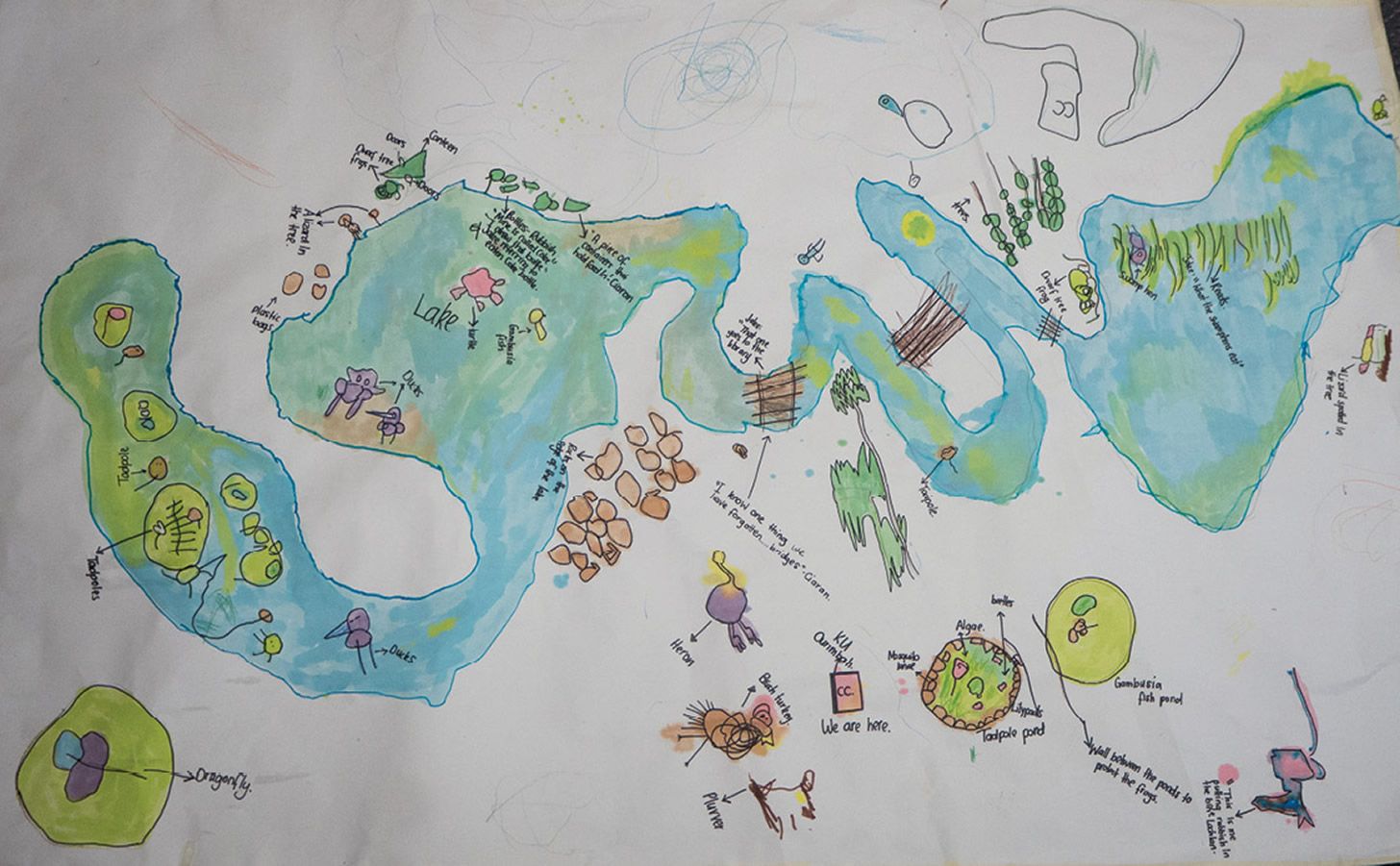Rosanne Pugh, Director at KU Ourimbah Preschool and Children’s Centre, in her workshop at the IEUA NSW/ACT Branch Early Childhood Conference, presented on research co-constructed with children at her centre and their researchers.
This research referenced The Project Approach (Helm & Katz, 2011) to illuminate children’s voices as they encountered daily walks on campus and the play affordances in nature. Throughout the project attention was focused on children’s intellectual dispositions (Helm & Katz, 2011) and the various ways children might choose to initiate their involvement through decision making, enquiry and/or direct engagement.
We began with a problem of the impacts of invasive species on the health of the local ecosystem, where an introduced Gambusia fish species now threatened frogs through predation. We could see this vividly as our field trips progressed from built ponds to waterways. Teacher planning considered children’s likely questions, their potential funds of knowledge, relevant on campus field sites to visit, experts as visitors, centre learning resources and feasible artefacts to create.
Critical friend (Ann Pelo) offered further insights, suggesting the exploration of non scientific threads about relationships. How might children link their relational experiences of friends and family to the pond ecosystems and animals as integral to the envisaged project? Pelo also argued two simultaneous intentions for educators: ‘An intention to honour and strengthen children’s processes as thinkers, making meaning of the world via empathetic insight, and an intention to offer opportunities to learn the working of the world’ (Critical Friend, 5 September 2017).
Negotiating these intentions required sensitivity, alertness and a willingness to envisage a continuum of perspectives from a philosophical and relational one to a purely scientific one. All perspectives had merit for opening ‘a deeper realm of thought and feeling’ with children (Critical Friend, 5 September 2017). Also, we noted that feelings or affective dispositions most often bring a dimension of urgency for children and adults alike, whether the concern is personal, local or global in scale.
The curriculum project approach phases were initially mapped out, but post implementation with children, a dynamic, multi layered process was evident:
Phase 1 - Getting started: The children and educators explored what creatures they noticed during field trips and shared their knowledges and any misconceptions, leading to a focus on Gambusia fish and frogs.
Phase 2 - Developing the project: The children explored what they could find out by researching with others about Gambusia fish and frogs. Indepth field investigations, invited experts, resources such as maps and various expressive media were employed to document their research and learning.
Phase 3 - Concluding the project: This phase focussed on how the children could tell everybody what they now knew. They created a large biotopic map depicting waterways, animals, plants and litter to communicate findings and promote broader advocacy, then considered what next.
In summary, the children explored a multiplicity of interrelationships both human, flora and fauna in their natural environs leading to their expression of key conceptual understandings about balance and belonging through various media. Such key ecological concepts resonate at local and global levels and are fundamental to systems thinking and sustainability, alongside the process skills children practised such as observation, negotiation and problem solving. In sharing this research study and embedded curriculum project we envisage potential for implementation in other settings where local environs and sustainability concerns may offer a provocation for co-constructed and transformative learning, plus community advocacy and action both by and with children for sustainable futures.
Dr Sue Elliott, Principal Investigator, University of New England, Rosanne Pugh, Ann Pelo, Co-investigator and critical friend role for Rosanne Pugh








































































































































